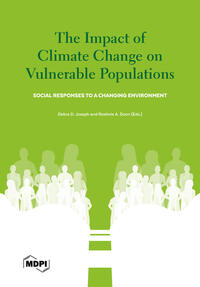
Climate change and urban development threaten health, undermine coping and deepen existing social and environmental inequities. A changing global environment requires transformative social responses: new partnerships, deep engagement with local communities, and innovation to strengthen individual and collective assets. The chapters of this edited volume have mainly been contributed by established and emerging scholars representing social work, sociology, development studies, law, government, social anthropology, urbanism, public policy, and other social sciences. This book is to be used for academics, policy makers, social work students, lecturers and other stakeholders to promote advocacy for vulnerable client groups affected by climate change. It gives some measure of hope and makes the invisible visible, allowing for change.